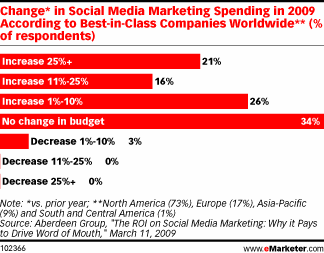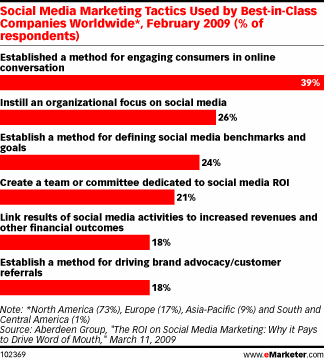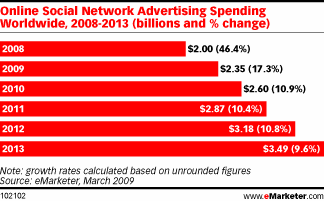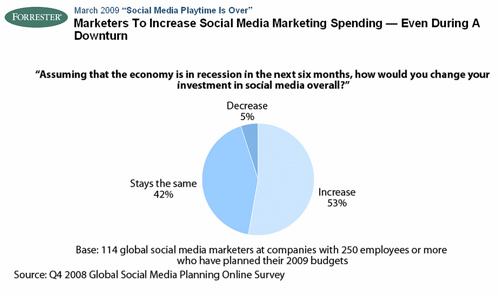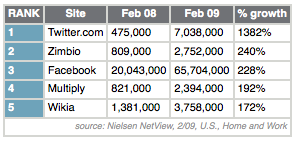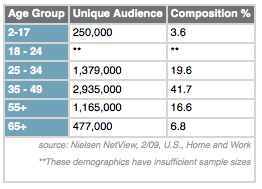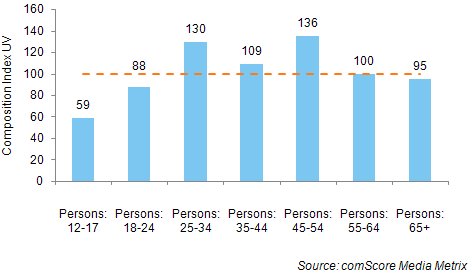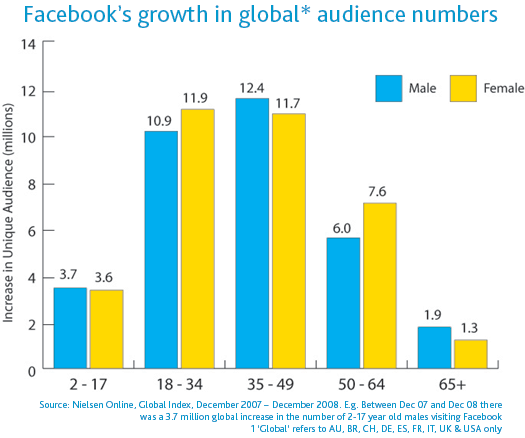![]() Forrester has recently made a decision to limit blogging activities by analysts to Forrester branded blogs for any topics related to their research coverage area. Forrester analysts can continue to blog about vacations or other personal topics on their own blogs, but they will only be able to blog on the Forrester website for topics that they also cover as part of their role as a research analyst.
Forrester has recently made a decision to limit blogging activities by analysts to Forrester branded blogs for any topics related to their research coverage area. Forrester analysts can continue to blog about vacations or other personal topics on their own blogs, but they will only be able to blog on the Forrester website for topics that they also cover as part of their role as a research analyst.
SageCircle has a more in-depth analysis of the issue, including an official statement from Forrester. According to SageCircle:
“Forrester CEO George Colony is well aware of that savvy analysts can build their personal brands via their positions as Forrester analysts amplified by social media (see the post on “Altimeter Envy”). As a consequence, a Forrester policy that tries to restrict analysts’ personally-branded research blogs works to reduce the possibility that the analysts will build a valuable personal brand leading to their departure. In addition, forcing analysts to only blog on Forrester-branded blogs concentrates intellectual property onto Forrester properties increasing the value of the Forrester brand.”
…
“Because there are relatively few analysts at Forrester and large firms that have personally-branded research blogs, this new policy will likely have relatively little short term impact. However, policies like this might hamper future analyst recruiting efforts limiting the type of individuals wanting a job at a firm.” (Quoted from SageCircle)
Given the current economic situation, I agree that this decision is unlikely to have much short-term impact on Forrester, but the long-term effects could be devastating. I suspect that several of their analysts will leave over this decision, although they may wait until the economy starts to improve before making the jump. I also think that they will have a hard time recruiting top talent. Very few people who have built active blogs in their areas of expertise will be willing to give them up. I know that I would never consider working for Forrester under these restrictions.
With that said, I understand why Forrester is making this decision, but I don’t agree with it. I suspect that it is in part an overreaction to several recent high-profile departures from Forrester, including people like Jeremiah Owyang and Charlene Li. While the desire to have all of the content written by Forrester analysts in one place is understandable, there are other ways to pull in the content than by limiting blogging on other websites.
I have been reading Jeremiah’s blog for a long time, and I frequently ran across Forrester research through his blog that I might not have found otherwise. Allowing people to continue to blog in places where they already have a following drives more people to Forrester’s research. Yes, their analysts continue to build a name for themselves, which also reflects positively on Forrester, but they also provide valuable exposure to the research outside of Forrester’s traditional channels. Dennis Howlett at ZDNet provides some more insight into the value that bloggers with an established following brought to Forrester in increased revenue over the past year or so.
It was interesting to read Augie Ray’s perspective. He recently joined Forrester as an analyst, and here are a few of his thoughts on the issue:
“Am I thrilled at the prospect of giving up Experience: The Blog, my personal/professional blog? Well no—it’s become part of my digital identity and represents thousands of hours of time and effort. But I also understand Forrester’s reasons for the changes. There are obvious benefits to the company of aggregating intellectual property on Forrester.com, including Search Engine relevance and creating a marketing platform that demonstrates the breadth and depth of analysts’ brainpower and coverage.”
…
“I’ll be sad to see Experience: The Blog go, but I’m also looking forward to digging into the new Forrester blog platform. There, I will continue to do what I’ve been doing for years on my personal blog: Sharing news, offering insights, connecting with others, asking for input, and—most importantly—continuing to build my reputation within my field.” (Quoted from Experience: The Blog)
This decision is generating some high profile criticism, and I hope they reconsider this decision. These types of restrictions just aren’t practical in today’s environment where our jobs and personal lives are becoming blended, particularly through social content on blogs and Twitter.
